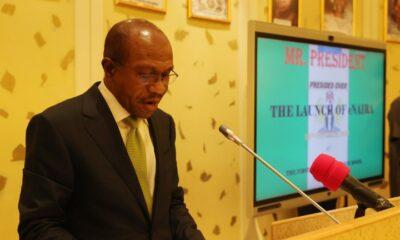MTN resumed airtime sales on banking channels Sunday after banks lifted a ban on the telco following an intervention by the Nigerian government.
Nigerian banks on Friday barred the Johannesburg-based firm from using their USSD platform to conduct business as both sides scuffled over airtime sales fees.
The three-day-long feud started after MTN, which has the biggest share of Nigeria’s telecoms market, reduced the rate it pays banks for each transaction from 4.5 per cent to 2.5 per cent.
The lenders removed the telecom giant from their platforms, disallowing MTN users from accessing their bank accounts to recharge their phones.
As subscribers expressed their frustration, MTN advised them to seek alternative ways of recharging. On Saturday, the firm announced alternative channels for its airtime sales, including a host of fintech platforms led by Flutterwave.
Service resumed Sunday afternoon after MTN agreed to revert to “status quo” at the request of the Minister of Communications, the Nigerian Communications Commission and the Central Bank of Nigeria while a permanent solution is being worked out, the news media gathered.
“The CBN Governor’s intervention is in line with our core values. We acceded to his request and that of our Minister. We will continue to live our values that ‘everyone deserves the benefits of a modern connected life’,” Carl Toriola, MTN Nigeria chief executive, said Sunday.
The telco told PREMIUM TIMES its firm’s pursuit has always found motivation in leveraging business to the fullest in the interest of customers and the Nigerian market.
“MTN’s intention has always been geared towards business optimization to the benefit of our customers and indeed the country,” Mr Toriola said.
“This is evidenced by the fact that through the USSD imbroglio, we never denied access to our customers. In the current case, customers have been denied access to services by the banks despite having monies in their accounts to purchase those services. MTN will naturally do all it can to minimise customer pain. It is not just about revenue for us. The good of our customers influence every decision we take.”
The Banks had said earlier that they were responding to check MTN’s “excesses”.
However, a source said, “the truth is that if MTN gets away with this, banks should expect further reduction if not checked. Over 60 per cent of airtime vending by telcos today are done electronically through the banks.”
They argued that the percentage MTN pays is lower than that of other telcos, but MTN insiders, who also requested to speak anonymously, defended the network’s decision.
“We did a commission optimization which saw the banks commission reducing from an average of 3.5% to 2.5%. This reduction is standard because the volumes compensate for the reduction,” MTN source said.
“We reviewed our commissions downwards. Most of the banks are not connected to us directly but through a third party – our convenience channel partners and aggregators.
“Communication was shared with the partners who in turn wrote to the banks (the banks here are agents to the partner). Our contract with the partners allows us to do this;
“The channels were blocked yesterday midnight leaving our customers stranded. Interesting that the bank MDs met and quickly took a decision. This references our conversation around NCC standing in the gap for the industry. Subscribers to telecommunications are being denied services by the banks even when they have money in their accounts;
“Zenith Bank is connected directly to MTN – their earnings is at 2.70%. They are happy and have not blocked us;
“Banks on ‘MTN On Demand’ had an uplift in their commission from 2.0% to 2.75% yet have blocked services;
“Banks with direct connection to us through ‘MTN On Demand’ got a commission uplift.” The source explained.




 Naira4 weeks ago
Naira4 weeks ago




 Naira4 weeks ago
Naira4 weeks ago


 Naira3 weeks ago
Naira3 weeks ago


 News4 weeks ago
News4 weeks ago
 Travel4 weeks ago
Travel4 weeks ago




 Naira4 weeks ago
Naira4 weeks ago


 Jobs3 weeks ago
Jobs3 weeks ago
 Naira3 weeks ago
Naira3 weeks ago

















